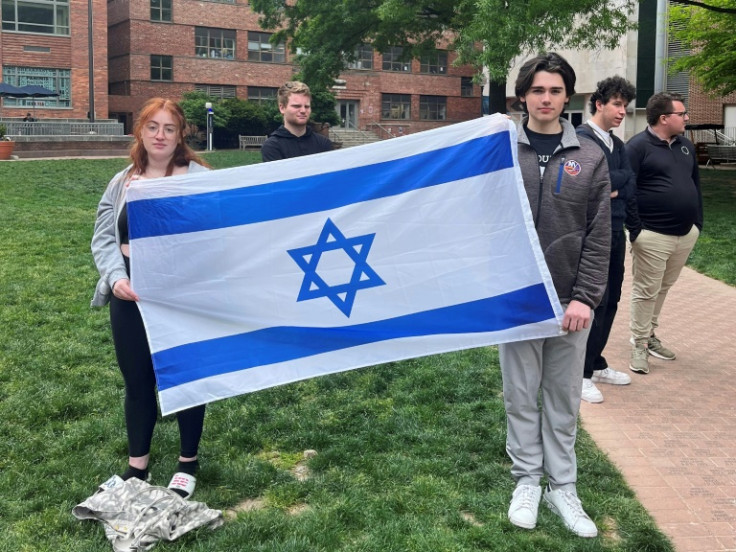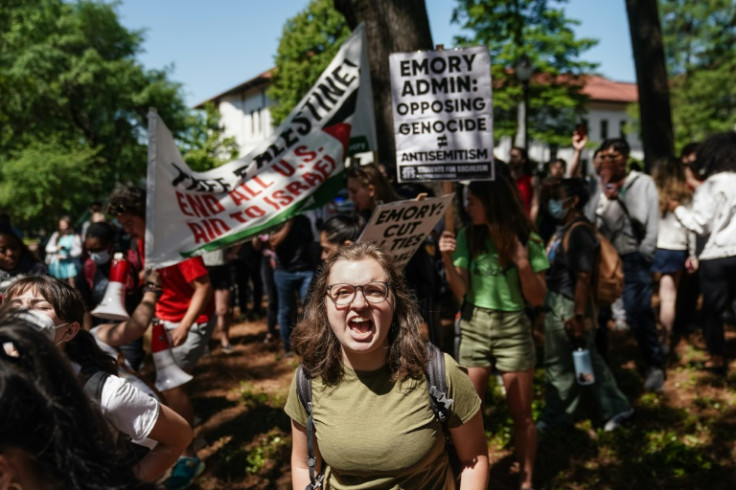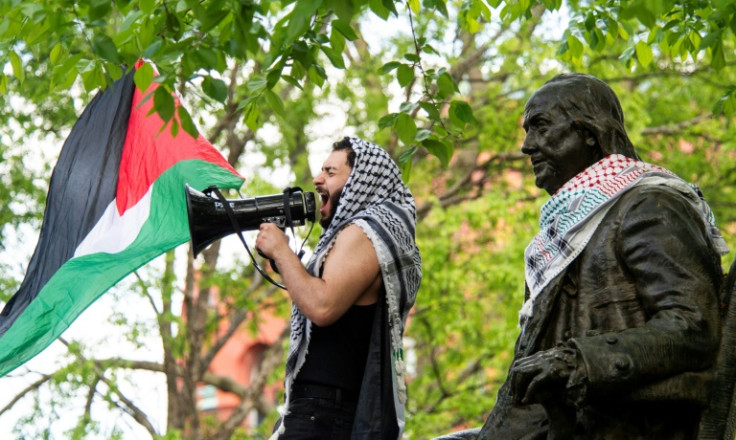
Israel's war against Hamas has sparked anger and division around the world, including on US campuses, where some Jewish students feel targeted and abused while others have taken leading roles in pro-Palestinian demonstrations.
"A lot of people feel really unsafe," says Eli Sanchez, a Jewish 20-year-old economics major at the University of California, Los Angeles, as pro-Palestinian protests upend college life.
"We've seen a lot of hateful rhetoric, anti-Semitic rhetoric. They've crossed that thin line very often," he told AFP. "It's not freedom of speech, it's freedom to yell your opinion, and then not listen and not engage."
Sanchez -- who stresses he wants peace in the Middle East -- said some Jewish students are afraid to wear kippahs, the small Jewish headcovering.
"We got people on the group chats asking: 'Can someone walk with me to class? I don't feel safe.' And that's really sad," he said.
While protests have been peaceful at UCLA, at some schools, police have carried out large-scale arrests, at times using chemical irritants and tasers, and university administrators have struggled to balance free expression on campus with complaints that the rallies threaten some students.
Some in-person teaching has been halted, and commencement and graduation ceremonies have been canceled at some colleges, as protests range nationwide from Yale in Connecticut to the University of New Mexico.
Columbia University late Thursday backed off its latest midnight deadline for protesters to leave their encampment on the prestigious institution's main lawn in a deepening stalemate.
"I support the liberation of Palestine," said Etai, a Jewish student at the University of Texas at Austin who preferred not to give his surname.
"What I don't support is chanting 'From the river to the sea,' which is all of Israel. They want Israel to be eliminated and wiped off the planet."
At George Washington University in the US capital, philosophy student Skyler Sieradzky, 21, said she was spat on when she carried an Israeli flag.
"I think that the freedom of speech and freedom of expression are important but not when it calls for violence," she said.
"There are students and faculty standing by messages of hate, and standing by messages that call for violence, but I've also never felt more proud to be Jewish."
Other Jewish students take a different tack.
Soph Askanase, a Jewish pro-Palestinian protestor, has been suspended from Columbia and arrested for trespassing.
"Being uncomfortable is different than being unsafe," Askanase said.
"We live in a country and we go to attend a university that extremely values free speech, open dialogue and rhetoric."
Protest organizers deny accusations of anti-Semitism, arguing that their slogans and criticisms are aimed solely at the Israeli government and its prosecution of the conflict in Gaza.
They also insist the more threatening incidents have been engineered by non-student agitators.
The war began with the Hamas attack on October 7 that resulted in the deaths of about 1,170 people in Israel, according to an AFP tally of Israeli official figures.
Israel's retaliatory offensive has killed at least 34,356 people in Gaza, mostly women and children, according to the Hamas-run territory's health ministry.
During their attack, Hamas seized about 250 hostages, 129 of whom Israel estimates remain in Gaza, including 34 the military says are dead.
Far from the bloodshed and suffering in the Middle East, many students feel the experience of US high school and college has not been what they hoped for due to Covid, and now the protests.
"The seniors started their freshman year on Zoom and now they're having to end it on Zoom," said Noah Letterman, a student in a joint program of the Jewish Theological Seminary and Columbia University.
"To me that's really disappointing, because everyone says this is not what college should be like."









